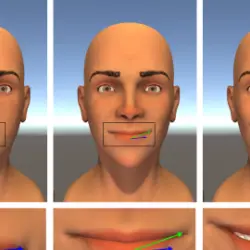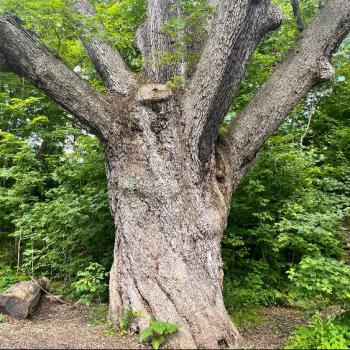Psalm 42
My morning prayers, Lauds today had me thinking about Psalm 42. It got me thinking about how this Psalm can teach us how to deal with challenging times.
Using the framework I posited in my other post this week, using lectio, oratio, contemplatio and meditatio, let us consider Psalm 42 (From the NIV version):
As the deer pants for streams of water,
so, my soul pants for you, my God.
2 My soul thirsts for God, for the living God.
When can I go and meet with God?
3 My tears have been my food
day and night,
while people say to me all day long,
“Where is your God?”
4 These things I remember
as I pour out my soul:
how I used to go to the house of God
under the protection of the Mighty One[d]
with shouts of joy and praise
among the festive throng.
5 Why, my soul, are you downcast?
Why so disturbed within me?
Put your hope in God,
for I will yet praise him,
my Savior and my God.
6 My soul is downcast within me;
therefore, I will remember you
from the land of the Jordan,
the heights of Hermon—from Mount Mizar.
7 Deep calls to deep
in the roar of your waterfalls;
all your waves and breakers
have swept over me.
8 By day the Lord directs his love,
at night his song is with me—
a prayer to the God of my life.
9 I say to God my Rock,
“Why have you forgotten me?
Why must I go about mourning,
oppressed by the enemy?”
10 My bones suffer mortal agony
as my foes taunt me,
saying to me all day long,
“Where is your God?”
11 Why, my soul, are you downcast?
Why so disturbed within me?
Put your hope in God,
for I will yet praise him,
my Savior and my God.
Psalm 42 deals with several topics that I want to explore: expression of deep sorrow, yearning for God’s presence, and trusting in God amidst trials.
Expression of Deep Sorrow
We must entertain the question, “how does the Psalmist’s expression reflect our own experiences of hardship?” As a therapist, I spend a lot of time teaching people how to feel. Because of my education and training, I can approach this both from a psychological point of view, but also from a spiritual viewpoint.
Hardship is part of the human experience, full stop. You do not get off this round ball without experiencing some sort of hardship in life. The Buddhists tell us that we suffer because we cling. Here, the Psalmist embraces his suffering, and he demonstrates fully for the reader to see.
In teaching people to feel, I will use words like, “be gentle with yourself, these are real emotions.” In this statement, I normalize the experience for the client. Again, in this Psalm, we see the effusion of emotional response.
Yearning for God’s Presence
Here, we must entertain the question, “how does the Psalmist balance his feelings of abandonment with his trust in God?” So often in the Psalms, the psalmist is asking God, “why are you so far away?” While I am not entirely sure of the cultural context of this, it is easy to see why some would say the God of the Old Testament is distant, far away and authoritarian. I tend however to believe that God is closer to us than we perceive. Whether we consider the presence of the Holy Spirit (https://www.patheos.com/blogs/loveopensdoors/2024/06/the-spiritual-journey-of-being-present/ ) Or we see a softer quality of God (https://www.patheos.com/blogs/loveopensdoors/2024/05/the-mothering-qualities-of-god/ ), we can see that God is very close to us. In fact, we will see this as this Psalm progresses, the Lord directs his love.
Trusting God Amidst Trials
Here, we must consider the question, “how can the repeated encouragement to hope in God guide us in our daily lives?” Hope is a spiritual practice it enhances our optimism and balances the despair as exampled in this Psalm.
One of the many problems I run into as a mental health clinician is the overwhelming lack of support some of my clients have in their lives. One of the many things I teach parents is that it is our job as parents to create meaning. For us in the churches, for us who claim the title of Christian, we need to continually reflect on the topic of hope and find ways to help others in despair enhance their optimism though continual encouragement of hope in God. I often claim that Jesus and God are not MacGuffins (https://en.wikipedia.org/wiki/MacGuffin ).
As a practice, putting our hope in God is a practice in patience. God’s timing is not our timing, God’s work and intentions are not ours. We cannot manipulate God or God’s will (that is why God is not a MacGuffin). Putting our hope in God cultivates our tolerance to deal with delays and willingness to let life unfold in its own time.
Thinking about this Psalm as a Spiritual Practice of You
There is a term I learned when I was in my internship for my Master’s, “hopeless, helpless, worthless.” This term describes a person who is potentially at the end of their emotional reserve, potentially close to or considering suicidality. One of the many topics I address as a clinician is the topic of why did God allow this to happen? Or where is God in all of this?
If you are a person struggling with your mental health, do not despair. God has not abandoned you. More than likely this will be a foreign concept because like many of my clients, you have been abandoned at some point in your life. Family, friends, even your faith. I tend to believe in a God who is the ultimate embodiment of love. In a future post, I intend to talk about grace. You are in God’s eyes, wonderfully made, you are a gift from the divine and you are a potential seat of Christ.
Be gentle with yourself. You are a spiritual practice. We are all on the road of becoming. Your past does not need to imprison you. You are more than the things done to you. There is hope. You are loved, by me and by God. Full stop.

















